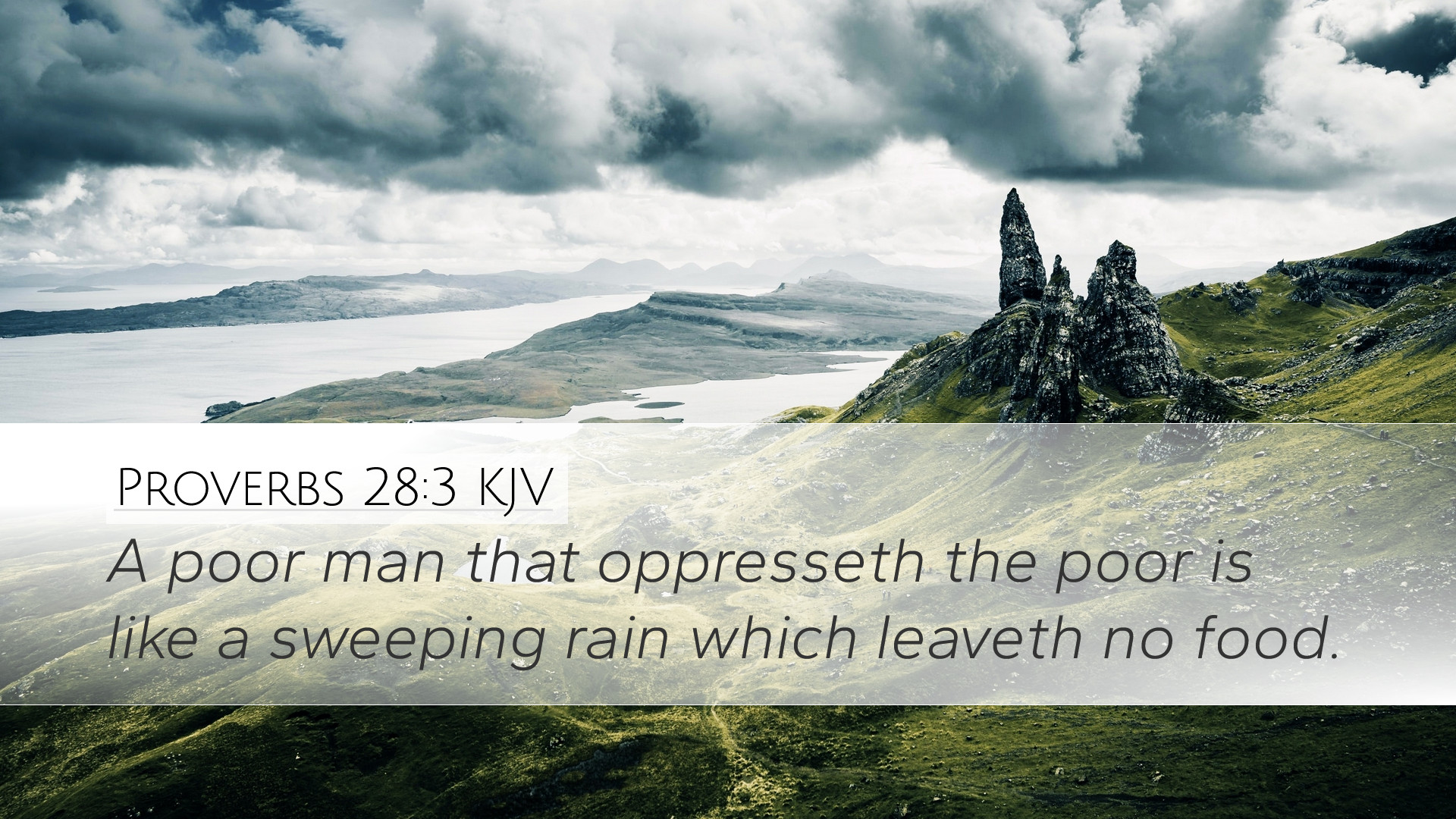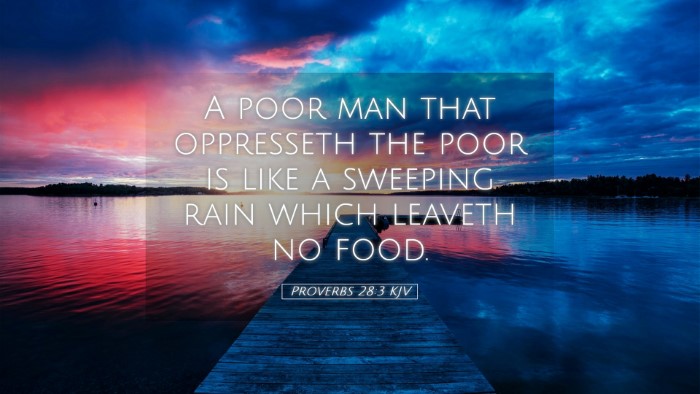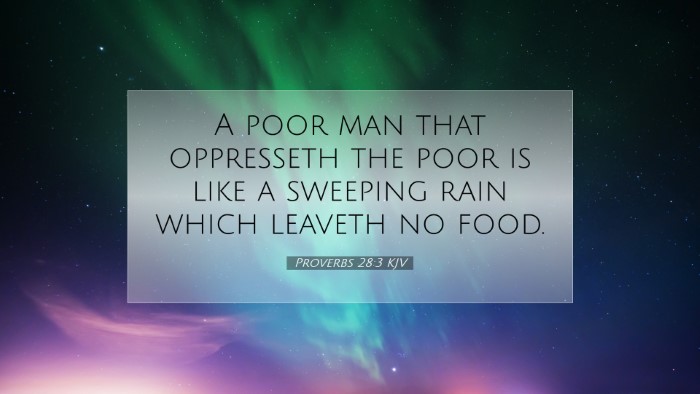Bible Commentary on Proverbs 28:3
Verse Text: “A poor man who oppresses the poor is like a sweeping rain which leaves no food.” (Proverbs 28:3, NKJV)
Introduction
Proverbs 28:3 presents a vivid metaphor that enhances the understanding of social justice, integrity, and moral responsibility. This verse uses the image of a "sweeping rain" to illustrate the destructive consequences of oppression, particularly one who, despite poverty, takes advantage of those even less fortunate. Insights from classic public domain commentaries provide depth and context to this compelling verse, allowing for a richer understanding suitable for pastors, theologians, and students alike.
Exegesis of the Text
At first glance, the verse presents a paradox: the poor oppressing the poor. This scenario highlights the moral failings that can exist within societal structures, suggesting a shared suffering that can lead to vice rather than virtue. The imagery of a rain that leaves no food portrays not only the destructiveness of oppression but also speaks to the betrayal of ethical responsibility among vulnerable populations.
Commentary Insights
- Matthew Henry's Commentary:
Henry emphasizes that the verse holds a mirror to society's failings, especially when the disadvantaged become instruments of further oppression. He notes the moral contradiction and argues that such actions are “most abominable” in the eyes of God. The sweeping rain symbolizes disappointment, suggesting that one who exploits their fellow poor only brings desolation.
- Albert Barnes's Notes:
Barnes provides a detailed exploration of the social implications of this verse. He notes that the term "poor man" can denote both physical and spiritual poverty, highlighting that oppression can stem from various motivations, including jealousy, resentment, or a desire for power. The "sweeping rain" serves as a metaphor for sudden, overwhelming calamity that leaves devastation in place of nourishment or growth.
- Adam Clarke's Commentary:
Clarke expands on the consequences of such a behavior, noting that oppression by the poor is particularly egregious since it portrays a grave betrayal of community trust. He reminds readers that the poor, suffering from their own disadvantages, should be empathetic rather than exploitative. The image of rain, which typically brings life, here becomes a symbol of death—representing the potential consequences of immorality in societal interactions.
Theological Implications
This verse compels readers to reconsider their understanding of poverty and oppression. Theologically, it presents significant implications regarding human nature and societal structure:
- Moral Responsibility: The notion that power dynamics can exist even among the impoverished challenges preconceived notions about who can be oppressors. Every individual, regardless of their status, bears the moral responsibility to act justly.
- Social Justice: The verse calls for awareness about societal structures and the roles individuals play within them. It invites a critical examination of how one can inadvertently perpetuate cycles of oppression.
- Divine Justice: The concept of divine justice is at play, suggesting that God sees and will judge all forms of oppression, particularly among the vulnerable, which aligns with the consistent biblical theme of God standing with the oppressed.
Practical Applications
For modern readers, including pastors and scholars, a study of Proverbs 28:3 encourages practical applications that enrich both spiritual practice and community life:
- Advocacy for the Marginalized: Recognizing that exploitation can occur in various contexts—and particularly among populations already suffering—creates an urgent calling for advocacy and protection of the most vulnerable.
- Community Engagement: Scholars and theologians are encouraged to foster dialogue and programs within churches that address poverty and injustice, encouraging proactive measures rather than reactive responses.
- Personal Reflection: Individuals are invited to reflect critically upon their own attitudes and actions regarding those less fortunate, ensuring that empathy and support replace exploitation and neglect.
Conclusion
Proverbs 28:3 serves as a vital reminder of the expectations of righteousness and empathy central to Biblical teaching. Drawing on the insights from credible public domain commentaries, the verse challenges both the heart and the mind to confront issues of justice, accountability, and moral integrity. As we engage with this verse, may we strive towards a society where compassion triumphs over oppression, echoing the values of the Kingdom of God.


